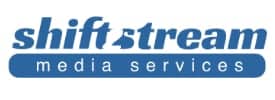- About
- Members
- Sponsors
- Subcommittees
- Technical Documents
- News
- Events
- Spotlight ATSC 3.0
- Contact Us
- Member Login
- Member Meetings
- Advanced Search
Search Site
Member Links
- About
- Members
- Sponsors
- Subcommittees
- Technical Documents
- News
- Events
- Spotlight ATSC 3.0
- Contact Us
- Member Login
- Member Meetings
- Advanced Search
Someone You Should Know: Chris Homer VP, Operations and Engineering, PBS
Posted on July 7, 2015 in ATSC News
 Chris Homer is deeply involved with the ATSC 3.0 standards-setting process, focused squarely on how closed-captioning will evolve and improve with the new TV standard. Today, he chairs the S34-5 ad hoc group on accessibility in the ATSC 3.0 specialists group on applications and presentation.
Chris Homer is deeply involved with the ATSC 3.0 standards-setting process, focused squarely on how closed-captioning will evolve and improve with the new TV standard. Today, he chairs the S34-5 ad hoc group on accessibility in the ATSC 3.0 specialists group on applications and presentation.
“Our group’s common mission is to assure ATSC 3.0 accessibility for people with disabilities through closed captioning and video descriptions.” – S34-5 Chairman Chris Homer
Currently Operations and Engineering Vice President at PBS, Homer started his storied career in electronics in the military, as a Naval Aviation Technician. After his military service, he studied math, music recording and television production, and received his Bachelors Degree in Business Administration in 1994 from California Coast University.
From there Homer went on to work for Harris Broadcast (now GatesAir) in the 1980s, where he developed an interest in broadcast television. “While working at Harris I had the opportunity to volunteer on a production called ‘Video West,’ which at the time was broadcast by PBS station KQED San Francisco.”
Later assignments brought him to Grass Valley Group, Digital F/X, Fox Broadcasting, and engineering leadership roles at two stations in the Los Angeles market – KWHY-TV and KMEX-TV. He also served as VP of Broadcast Operations at DIRECTV for seven years before joining PBS in Virginia in the spring of 2013.
Leading and Learning
Homer attended his first ATSC Boot Camp in 2014 and was fascinated by the efforts to introduce new business models for broadcasters.
“Since then I have served on the S35 Specialist Group on the TV Ecosystem and the advanced emergency alerting group, and I recently took on a leadership role as chair of S34-5 Ad Hoc Group on Accessibility,” he explains.
While serving on and chairing committees may be time consuming, Homer finds excitement and reward in the task. “It’s actually a bit terrifying and probably one of the most challenging activities I’ve ever done!
“Our S34-5 group has a ‘who’s who’ list of industry leaders, scientists and experts that take you through unfamiliar territory each and every week. Our group’s common mission is to assure ATSC 3.0 accessibility for people with disabilities through closed captioning, video descriptions and the like.”
 ‘Get Involved, Educated’
‘Get Involved, Educated’
“PBS and local public television stations have always been committed to harnessing the power of emerging technologies to serve the American people,” Homer says, explaining the benefits of ATSC involvement. “PBS has been involved with ATSC since 1.0 and through the transition toward 3.0. We look forward to finding more innovative ways to meet our public service mission.”
In order to maximize ATSC membership, Homer believes that involvement in the program and constant education are key.
“In the case of ATSC 3.0, everything changes. So it’s not a matter of going analog to digital, or standard definition to high definition. It’s about a completely distinct platform that supports new functionality such as mobile, content file delivery, audience measurement and new ways of enjoying TV with immersive sound. ATSC 3.0 takes advantage of IP technology, advances in compression and transmission technology to optimize bandwidth to support these new opportunities.”
Outside of his PBS and ATSC responsibilities, Homer enjoys riding his bike along the Potomac, having relocated to Alexandria, Va. from California. On top of that, he finds wine tasting with his wife to be quite enjoyable.
Posted in ATSC News
News Categories
News Archives
Subscribe
Subscribe to The Standard, our monthly newsletter. Learn More
Join ATSC
ATSC is a membership organization with both voting and observer categories. Voting members include corporations, nonprofit organizations, and government entities, and they participate actively in the work of ATSC. Observers are individuals or entities not eligible to be a voting member.
Subscribe to our Newsletter
Subscribe to The Standard, our monthly newsletter, to stay up-to-date with ATSC news and events around the world.
Site Links
Contact Us
Advanced Television Systems Committee, Inc.
1300 I Street NW, Suite 400E
Washington, DC 20005
Do you have questions about ATSC?
About ATSC
The Advanced Television Systems Committee, Inc., is an international, non-profit organization developing voluntary standards and recommended practices for digital terrestrial broadcasting. ATSC member organizations represent the broadcast, broadcast equipment, motion picture, consumer electronics, computer, cable, satellite, and semiconductor industries. ATSC also develops digital terrestrial broadcasting implementation strategies and supports educational activities on ATSC standards.
© 2024 ATSC








































